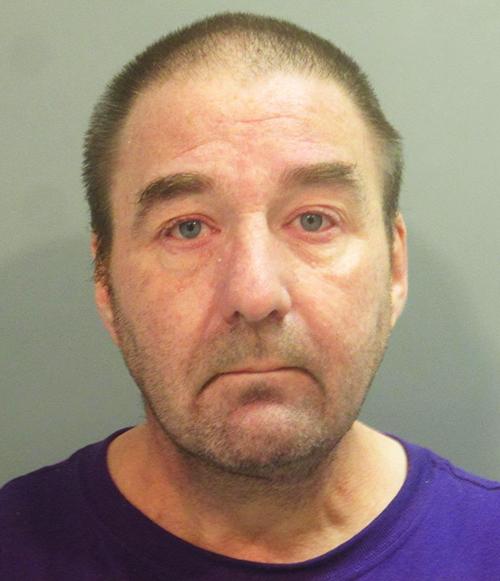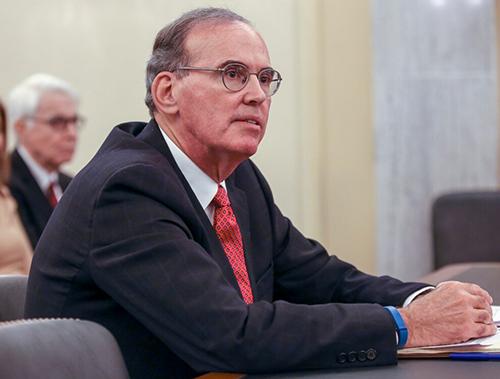VA Office of Inspector General recommends changes in management processes after doctor is sentenced to long federal prison term
In a compelling report, the US Department of Veterans Affairs (VA) Office of Inspector General (OIG) found that a host of management failures and “deficiencies in the facility’s quality management processes” at an Arkansas VA hospital contributed to “thousands of diagnostic errors” throughout the tenure of the facility’s Chief of Pathology and Laboratory Medical Services Robert Morris Levy, MD.
Levy oversaw pathology and medical laboratory services at the Fayetteville VA Medical Center from 2005 until 2018. The hospital is part of the Veterans Health Care System of the Ozarks.
The OIG’s report, titled, “Pathology Oversight Failures at the Veterans Health Care System of the Ozarks in Fayetteville, Arkansas,” pointed to “deficiencies in quality management processes” and a “failure to foster a culture of accountability,” which allowed Levy to practice at the facility despite staff concerns that he appeared to be impaired by alcohol while on duty.
“Any one of these breakdowns could cause harmful results,” the report states. “Occurring together and over an extended period of time, the consequences were devastating, tragic, and deadly.”
The OIG report’s findings on how hospital and laboratory administrators dealt with Levy over the years of his employment at the Fayetteville VA Medical Center demonstrate why clinical and pathology lab leaders need to be constantly vigilant in how various quality and compliance procedures are administered in their laboratories. When people and processes are not meeting acceptable standards, it is patients who are at risk of being harmed.
In January, the federal court in Arkansas sentenced Levy to “240 months in federal prison, followed by three years of supervised release and ordered [him] to pay $497,745.70 in restitution for one count each of mail fraud and involuntary manslaughter,” according to court documents.

In its coverage of the federal case against Robert Morris Levy, MD (above in a jailhouse photo), former Chief of Pathology and Laboratory Medical Services at the Fayetteville VA Medical Center, The Washington Post wrote, “Levy’s supervisors failed to heed early warnings that he was endangering patients and then were slow to act, according to internal VA documents, court filings, and interviews with 20 congressional officials, veterans and current and former VA employees.” Clinical laboratory managers and hospital pathologists would be well advised to study the VA’s conclusions in its recent report. (Photo copyright: The Washington Post.)
VA Pathologist Received Multiple Suspensions, then Termination
Following his removal in April 2018, the OIG assembled a team of pathologists to review nearly 34,000 cases interpreted by Levy since he began working at the VA hospital. They identified more than 3,000 errors, of which 589 were classified as “major diagnostic discrepancies” potentially having a negative impact on patient care.
Of the 589, 34 were deemed serious enough to require institutional disclosures, defined as a discussion with the patient or the patient’s representative revealing “that an adverse event has occurred during the patient’s care that resulted in or is reasonably expected to result in death or serious injury.”
The OIG report cited at least two deaths likely resulting from misdiagnoses.
Levy’s hospital privileges were initially suspended in March 2016 following a blood alcohol test indicating he was legally intoxicated while at work. He was reinstated about six months later after completing a treatment program and agreeing to submit to random drug testing.
His privileges were suspended again in October 2017 after he showed signs of impairment during a hospital committee meeting. He was terminated in April 2018 after he was arrested for allegedly driving while intoxicated (DWI) during work hours.
Federal Court Indicts Levy on Multiple Counts
Shortly after the OIG team began reviewing Levy’s cases, a separate OIG group launched a criminal investigation. Levy admitted to investigators that he had been an alcoholic for 30 years, the report stated, and that he had “purchased a substance, 2-methyl-2-butanol (2M2B), online that could be ingested, was similar to alcohol but more potent, and was not detectable using routine drug and alcohol testing methods.”
Citing the federal indictment, the OIG report noted that Levy passed 42 drug and alcohol tests following his reinstatement at the hospital in 2016.
In August 2019, federal authorities charged Levy with three counts of involuntary manslaughter along with multiple counts of wire fraud, mail fraud, and making false statements. The wire and mail fraud charges were related to his 2M2B purchases.
Levy pleaded guilty in June 2020 and was sentenced on January 22, 2021. In addition to the 20-year prison term, he was ordered to pay approximately $498,000 in restitution to VA. The OIG report noted that Levy has appealed the sentence.
In “Pathologist, Neurosurgeon, and Critical Care Specialist Face Criminal Charges in the Deaths of Dozens of Patients,” which covered the Levy case, Dark Daily asked, “At what point might criminal investigators hold medical laboratories accountable for not notifying authorities about lab test utilization patterns by physicians who could be reasonably understood to be putting their patients at risk of harm?”
And in “Arkansas Pathologist Faces Three Manslaughter Charges,” Dark Daily’s sister publication, The Dark Report, noted that “The outcome of [the Levy] case could be a precedent that gives other prosecutors the confidence that they can file criminal charges in cases where evidence shows that a pathologist’s actions contributed to diagnostic errors that directly contributed to the death of one or more patients.”

“This sentence should send a strong message that those who abuse their positions of trust in caring for veterans will be held accountable,” said VA Inspector General Michael J. Missal in a federal Department of Justice (DOJ) press release. “Our thoughts are with all those harmed by Dr. Levy’s actions, and we hope they find some small measure of comfort from what happened here today.” (Photo copyright: Military Times.)
OIG Finds Numerous ‘Deficiencies in Quality Management’
In its report, OIG found deficiencies in quality management going back to Levy’s original appointment as Pathology and Laboratory Medical Services Chief.
He was initially hired in September 2005 as a locum tenens (temporary) provider and appointed as full-time service chief a month later. This was despite a DWI conviction from 1996 and a stay of only eight months with his previous employer.
Neither would have barred the doctor as a potential candidate; however, the OIG report states, “the OIG is concerned that a rigorous process was not in place to better evaluate his clinical competency at the time he was hired.”
And that was just the beginning.
In his role as service chief, Levy was responsible for the Path and Lab quality management program with assistance from a subordinate staff pathologist, “which made the process susceptible to subversion,” the report states.
The VHA requires a second pathologist to review certain findings, such as diagnosis of a new cancer malignancy. But in some cases, “it was determined that Dr. Levy was entering concurrence statements into some patients’ electronic health records (EHR) when a second pathologist had not agreed with the interpretation or diagnosis,” the OIG report states.
In addition, second reads sometimes “were communicated by sticky notes, which provided Dr. Levy the opportunity to alter or ignore the results,” the OIG reported.
Inherent Conflict of Interest, Fear of Reprisals, and OIG Recommendations
The periodic privileging process, which grants ongoing hospital privileges, was based in part on a “10% peer review” conducted by the staff pathologist. “The involvement of a subordinate in the peer review process of a supervisor creates an inherent conflict of interest,” the OIG report stated. And in some cases, appraisals of the doctor’s competence came from non-pathologists.
The OIG report suggested that the Veteran’s Health Administration (VHA) re-examine its guidance on the peer review, which requires cases to be randomly selected. Instead, the report suggests that targeting specific kinds of cases, such as those with higher risk of interpretation error, could be more effective in analyzing a pathologist’s performance.
The OIG report also noted failures in dealing with the doctor’s impairment and fostering a “culture of accountability.” Hospital staff, apparently, reported signs of impairment as early as 2014, including incidents when the doctor smelled of alcohol and displayed hand tremors. But hospital leadership failed to “vigorously address allegations of impairment,” the OIG report states. And in interviews with the OIG, some staffers expressed fear of reprisal if they reported what they saw.
The OIG report offers 10 recommendations to the VA, including practices related to hiring processes, the 10% peer review, and alcohol and drug testing. It makes two additional recommendations to the director of the Ozarks VA health system: one related to the credentialing processes and the other aimed at ensuring staff and patients can report concerns without fear of reprisal.
Clinical laboratory managers and hospital pathologists may want to review these recommendations and consider the value of applying them in their own practices.
—Stephen Beale
Related Information
VA Hospital Allowed Alcoholic Pathologist to Go Unchallenged, Resulting in Patient Deaths: Watchdog
Convicted VA Pathologist Oversaw Himself, Federal Study Concludes



